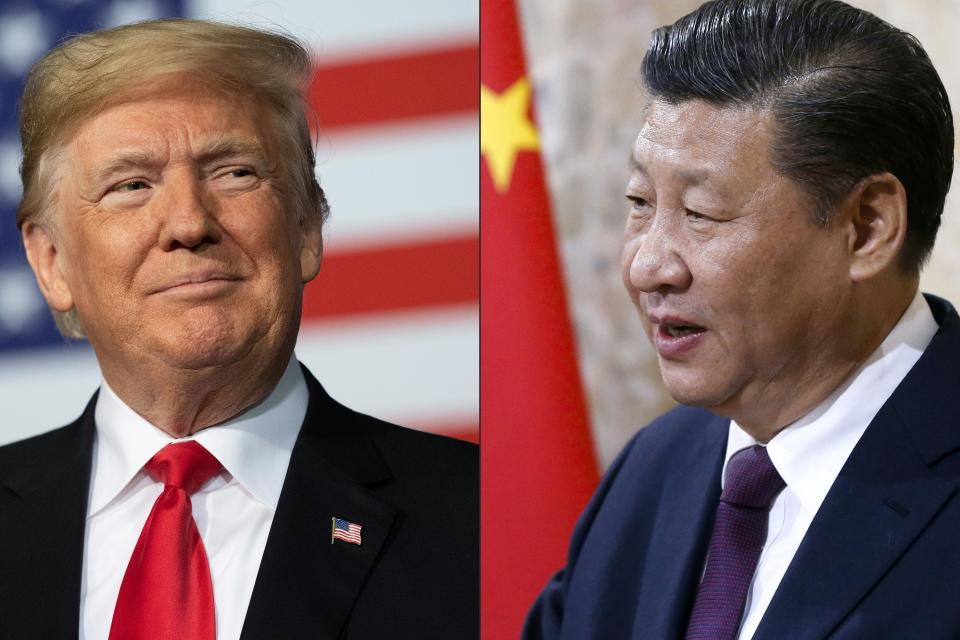How the US-Sino trade war is impacting global companies

China and the United States have been locked in a bitter trade war since president Donald Trump took office in 2016.
When they are not fighting over trade, technology and security, they are at odds over the coronavirus pandemic, or as Trump calls it the “China virus.”
The Trump administration has long accused China of unfair trading practices, intellectual property theft and using personal data from apps to spy on Americans. Beijing in turn believes that the US wants to dim its rising star on the global economic stage.
While the two nations signed a preliminary trade deal in January 2020, some of the thorniest issues remain unsolved.
Social media and chatting apps have also fallen victim to the ongoing tiff, with TikTok and WeChat both narrowly avoiding being banned from downloads in US app stores.
With no end in sight and as relations between the economic powerhouses continue to fray, a study by the United Nations Conference on Trade and Development, laid bare the impact of the trade war.
The research showed a sharp decline in bilateral trade and that consumers in the US bore the “heaviest brunt” of US sanctions on China, as importing firms were charged more, which meant higher prices for consumers.
Figures revealed that US tariffs caused a 25% export loss, inflicting a $35bn (£27bn) blow to Chinese exports in the US market for tariffed goods in the first half of 2019.
Now, the dispute between the world’s largest economies, which has seen multiple sanctions imposed by both sides, has not only affected global markets and economies — but also companies worldwide.
After the US imposed tough restrictions on China’s Huawei on national security grounds and encouraging other nations to follow suit, the company lost many relationships with global companies and countries.
In retaliation, China put foreign firms and individuals violating normal market transactions in the country — interrupting deals with Chinese firms — or taking discriminatory measures against Chinese companies on a blacklist.
Firms that end up on the blacklist could be banned from investing in or importing or exporting in China. Other actions, include entry restrictions on workers entering the country, revoking work or residence permits and imposing fines.
READ MORE: Japanese chipmaker Kioxia delays IPO amid US-China tensions
In July, the UK government decided to block the Chinese firm from having a role in the country’s 5G network.
As a result, British telecoms companies were instructed to remove Huawei equipment from the 5G network by 2027 and stop buying new 5G equipment from the company by the end of the year.
Last week, BT (BT-A.L) announced it had signed a major deal with Nokia (NOK), following Huawei’s ban, making the Finnish company BT’s largest equipment provider.
Nokia will supply base stations and antennas to radio sites across the UK used by the EE 5G mobile network, as well as take on work across BT’s 2G and 4G networks.
Such last minute changes will not just delay Britain’s 5G rollout by up to three years, but will likely cost the telecommunications sector billions to accommodate.
“It is critical we make the right technology choices in the fast-moving and competitive market,” chief executive of BT Group, Philip Jansen, said.
READ MORE: China's Huawei banned from UK 5G network
Across the globe, Japan’s Sony (SNE) and memory chipmaker Kioxia, are seeking approval from the US commerce department to continue supplying Huawei Technologies, Nikkei reported.
If confirmed, the move follows other tech giants such as Intel Corp (INTC), which recently received licences from the US commerce department.
The world’s second-largest maker of NAND flash memory chips was previously caught in the crosshairs of the US-Sino trade war following Trump’s de facto ban on its client Huawei.
Kioxia announced last week that it would put plans for Japan’s biggest initial public offering (IPO) on ice. The company planned to list on the Tokyo Stock Exchange (JPXGY) on 6 October, it was due to reveal pricing for its $3.2bn listing before postponing.
It made the decision after the US commerce department imposed sanctions on China’s biggest chipmaker Semiconductor Manufacturing International Corporation (SMIC), warning exporters that there is an “unacceptable risk” equipment supplied to SMIC could be used for military purposes.
Kioxia warned tighter US restrictions could cause memory chip oversupply and drive down market prices.
Without the US licences, Sony and Kioxia are set to lose huge earnings.
Huawei is estimated to account for about a fifth — or roughly $9.5bn — of Sony’s image sensors for smartphones sales, making it the second biggest buyer after Apple (AAPL).
South Korean companies, Samsung Electronics (BC94.L) and SK Hynix (000660.KS) are also seeking licenses from the US to sell to Huawei — one of the world's top makers of smartphones and telecommunication infrastructure.

